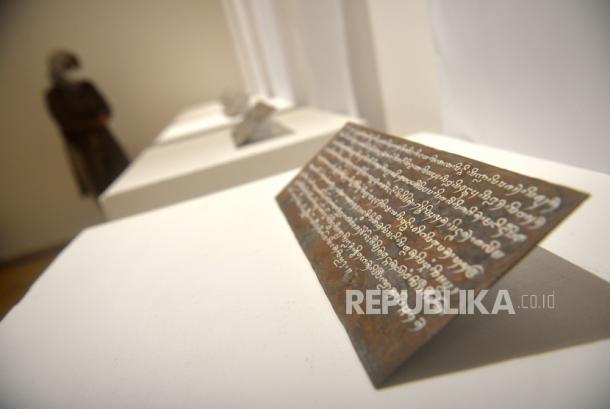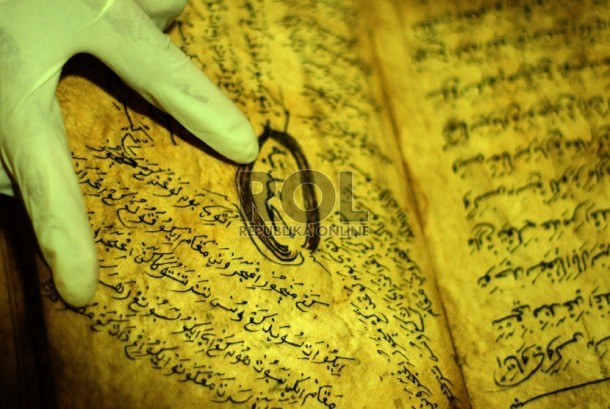Judul : Al-Ihsan and "Welas Asih" Are Not Original Words of the Homeland
link : Al-Ihsan and "Welas Asih" Are Not Original Words of the Homeland
Al-Ihsan and "Welas Asih" Are Not Original Words of the Homeland
Best for you.CO.ID, BANDUNG - Recently, the Indonesian online world has been lively with the act of West Java Governor Dedi Mulyadi changing the name of RS Al-Ihsan in Bandung Regency to RSUD Welas Asih. Dedi's reason is that he wants a name closer to "Sundanese local wisdom."
Although the word "Welas Asih" is not entirely original from Sunda. The word "Āśīḥ" or "आशी:" is originally a Sanskrit vocabulary. According to the dictionary compiled by Ram Narain Lal in 1936, the word can mean "a request for protection to gods and goddesses," and also means "blessing." Referring to the Sanskrit dictionary by H.H. Wilson (1832) and Monier Williams (1872), the word can mean "to hope for or bestow blessings."
On social media, this effort by the West Java Provincial Government has been met with various reactions. It even led to accusations of de-Islamization and de-Arabization. If there was indeed such an intention, this would be a rather difficult effort. Because if you think about it, the Indonesian language is indeed like that. It is greatly influenced by foreign words.
It is believed that the Indonesian language comes from lingua franca It has been widely used by traders in Nusantara for a long time. It is said to have originated from the Malay language spoken in the Riau-Lingga and Johor regions.
Initially, according to literary critics and Indonesianist Andries Teeuw, Old Malay emerged as late as the 7th century CE. Even then, the ancient form of Malay had already begun borrowing words and terms from Old Javanese and Old Batak. This would later become the basis for the flexibility of the language now used in Nusantara.

The Sanskrit language, which came along with the arrival of Hindu-Buddhist religion, also began to contribute vocabulary to the Old Malay language. In the inscriptions made for King Adityawarman around 1356 and found in West Sumatra, the Malay language at that time was already filled with loanwords from Sanskrit.
The clearest example of this influence can be seen in how the people of Nusantara referred to the large object in the sky that shines during the day. There is no ancient Malay word that has survived to denote this object. Instead, the word "matahari" (from "matanya Hari," which is another name for the god Wisnu) was used; then "Surya" and "Baskara," both also names of Hindu gods.
The next major evolution in Old Malay language occurred simultaneously with the arrival of Islam in Nusantara from the 13th to the 14th century. In a poem dated 1390 from Samudera Pasai in Aceh, although it still used the Sanskrit script, Arabic words and ideas from Islam were already found. By the end of the same century, the Sultanate of Trengganu already used the Arabic script for writing. Both were Islamic sultanates and used Malay as their literary language.
Since then, approximately, Malay language began to be enriched with thousands of words from Arabic. This additional vocabulary from Arabic later matched, even exceeded the loanwords from Sanskrit.
There are several theories about how the Arabic language later influenced the Malay language. Diplomat and scholar Nikolaos van Dam summarized that the most common theory is that Arabic entered Malay along with merchants, both from Hadramaut and India. However, he said, the greater influence came from the religious scholars. This is because only a small number of spoken Arabic words were adopted into Malay compared to Classical Arabic, also known as the literary language. Words such as "perlu" (necessary), originating from "fard," then "adil" (just), "musyawarah" (consultation), "ikhlas" (sincere), "akhlak" (ethics), "adab" (etiquette), are all religious terms.

This Malay language enriched with Arabic is also what later became the "lingua franca" of the Nusantara scholars. Indonesian scholar Michael Laffan wrote in his book Ummah Below the Wind that the network of Nusantara scholars, broadly referred to with the term "Jawi," also wrote and taught in Malay language, and helped its spread as far as southern Thailand.
The use of Malay language to translate Arabic books in the 16th and 17th centuries, according to Andries Teeuw, later branched into Literary Malay, also known as High Malay, and market language, also known as Low Malay or Market Malay. This Literary Malay later flourished in the Riau-Lingga and Johor regions, which is claimed to be the basis of the Indonesian language. This divergence had a long-term impact on the Indonesian language. Today, most Indonesians speak a version of the language that differs somewhat from the standard "correct" written language used in writings (such as this article) or state affairs.
Since the early 16th century, a number of European countries came and later colonized Nusantara. Starting from Portugal, Netherlands, and England. This also eventually contributed again to the vocabulary of the lingua franca spoken by the people of Nusantara. The words "boneka" (doll), "meja" (table), "kemeja" (shirt), "sepatu" (shoe), "kantor" (office), "pabrik" (factory); for example, all were originally brought by the colonists.
History later recorded that in 1928, nationalistic youths decided that the lingua franca rooted in Riau Malay would become the national language of the country they envisioned called Indonesia. The word "Bahasa Indonesia" itself was proposed by M. Tabrani at the First Youth Congress in 1926.
Nationalist newspapers were determined to use the language rather than Dutch. The problem was that the language lacked words to explain complex ideas. According to James Neill Sneddon, who wrote the history of the Indonesian language, journalists then independently introduced new terms, mostly translations from foreign languages.
Before independence, the lack of the word "original" was tried to be addressed. In 1942, Japan approved the establishment of a Language Commission to add new vocabulary. Soewandi, Sutan Takdir Alisjahbana, and Sukarno-Hatta joined the commission.
About 7,000 new entries have been excavated from the linguistic treasures of the Austronesian languages to fill vocabulary shortages. However, only a few have successfully become widely used. The "machine" from the Greek word "machina" could not be replaced with "jantera," which also originated from India. The term "ketua negara" to replace "president" has also disappeared somewhere.
Demikianlah Artikel Al-Ihsan and "Welas Asih" Are Not Original Words of the Homeland
Anda sekarang membaca artikel Al-Ihsan and "Welas Asih" Are Not Original Words of the Homeland dengan alamat link https://www.punyakamu.com/2025/07/al-ihsan-and-welas-asih-are-not.html
0 Response to "Al-Ihsan and "Welas Asih" Are Not Original Words of the Homeland"
Post a Comment